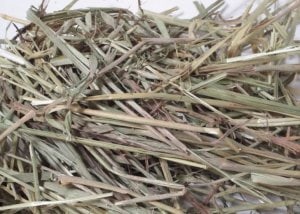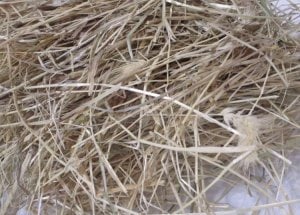What do rabbits eat? A Bunnies Diet

We’ve all seen bugs bunny chewing on a carrot while he tricks Elmer Fudd yet again. But what do rabbits eat? Do they even love carrots as much as you’ve been told? We’ll be going through everything you will need to know about what bunnies can eat and what they can’t. Every bunny owner needs to know this information, so we thought that we better write about it. Remember to let us know what you think in the comment section below, we love a good discussion.
The Rabbit Diet
Our bunnies are unable to forage like they would in the wild. They depend on us to know exactly what they need in order for them to have a healthy and balanced diet. Unfortunately, there are many myths, misconceptions and incorrect information when it comes to what a rabbit diet should consist of. Therefore we are going to break down exactly what a bunny needs and doesn’t need.
A rabbit’s diet in the wild consists of fresh and dried grass, mainly hay, edible weeds and various wild herbs nearby. When we keep their diet as close as we can to their wild rabbit counterparts, then we ensure a more hardy and healthy bunny. However, we do not just want to simply feed them any old weed, herb or dry grass as this could be dangerous. A rabbit’s diet should consist of high fibre, moderate protein and low carbohydrates. When we keep this in mind when choosing what our bunnies eat, this will vastly improve their health and diet.
Yes, that’s great info, but what do bunnies eat?
Ok, ok, I get your feeling slightly impatient, so I am just going to get straight into it. A rabbits diet consists of 80% hay, and should always have access to unlimited fresh hay. Yes, I said unlimited, because this is the most important part of their diet. Hay is full of fibre, and it’s much better than what you’ll find in good quality pellets. This fibre is a large indigestible fibre and is far more effective than the small pulverized fibre (found in pellets) at moving food through the digestive tract of rabbits.
Hay, hay, hay!
Why the subheading, hay is just hay right? wrong, not any old hay will do. Believe me or not, some just won’t do. It is crucial you pick the correct hay since it is 80% of their diets. There are a lot of varying types and colours.
Firstly, let’s talk about what NOT to buy. Picture this, you are walking down the aisle of your local supermarket, shopping for your food for the week and you come across the pet aisle, you walk down and you see a yellowish dusty bag of shortly stemmed hay sitting there eyeing you off with an attractive price tag. You think, “It’s cheap and it saves me from going to my local pet store or produce store like no eco”. However what you don’t realise is that the fresh food claim they made above their store, doesn’t really apply to rabbit food. Your local supermarket rabbit food is cheap and nasty, and that yellowish dusty dry hay is not at all giving your rabbit what it needs.
Good Quality hay is not as hard to find as you think, most pet stores will have better hay than your local supermarket. When selecting the right quality hay, a long-stemmed (thick or thin), greenish pieces speckled through it (depending on the type), and fresh smelling/looking hay is what you are looking for. It needs to look appealing and smell good. I’ve provided some pictures below to demonstrate what I mean.

Greenish shoots long-stemmed good quality hay – oaten hay

Good quality hay, with greenish strands speckled throughout – meadow hay
Vegetables & Grass
Now onto veggies, this is also an important part of their diet, just like it is with humans. Rabbits love a variety of fresh vegetables and these obviously are a great source of nutrients for them. When feeding your bunny new vegetables, make sure to introduce them slowly and give them breaks if you notice any signs of digestive upset. We always suggest to select a minimum of 3 different types of veggies every second day, but be sure below to check that they are edible for rabbits. Having a variety allows them to absorb a much larger range of minerals and vitamins.
Dark leafy vegetables are often the best kind, providing more fibre and nutrients. As a guide, feed your bunny about two packed cups of leafy veggies per kg of body weight, per Second day. Vegetables are 10% of their diet, this includes grass. Grass doesn’t offer the same levels of nutrients, so it should never be used to substitute veggies. However, we thought we’d call out a few veggies here too. Don’t feed them ice burg lettuce, as it just doesn’t work nicely with their digestive tract. Also, that myth about carrots being their favourite food and good for them, that’s incorrect. Carrots are great as a treat, but shouldn’t be in their pen all the time, since they are high in sugar. Also, many rabbits don’t even like carrots, we find kale is the new carrot, they love kale!
Pellets
First off, when it comes to rabbit pellets, usually picking a well know, high-quality brand of the pellet will be safe. So brands such as hygrain zero or Oxbow for example. Otherwise, pick pellets high in fibre and with a healthy spread of nutrients contained in each pellet. Do not use rabbit mixes as these are bad for them, they often contain way to much sugar.
Rabbits should only have a small handful of pellets each day (it’s only 5% of their diet), and their bowl should never be constantly filled. If you find your bunny doesn’t eat enough hay, then reduce the number of rabbit pellets you provide for them.
Fruit & treats
I have put fruit & treats in the same category, as fruit is really considered as a treat. Rabbits really love sweet things and would much rather eat them all day, but this is just not beneficial for your bunny. Suitable treats for your bunny consists of things like fresh fruit that is on the edible list and small chunks of veggies such as carrots, and herbs. As much as you want to share your human food with your bunny, it is just a bad idea, as our food is very bad for them.
Water
Rabbits need fresh water to drink at all hours of the day. Ensure that their water is always fresh and topped up. Also on a side note, a ceramic bowl is much better than plastic as it is much harder for your furry friend to tip it over.
Edible & Dangerous Foods
Lastly, there are many many dangerous foods your rabbit can’t have. So we thought we better provide a good list for you to be able to go through before feeding your rabbit anything it should or shouldn’t eat. I am going to list a few things that are a general no no, before I provide the list.
What CAN’T rabbits eat (General List) – Dangerous!
- Any plant that comes from a bulb is a not safe, so no onions, potatoes, garlic e.c.t
- NO SEEDS
- NO NUTS
- NO CORN
- NO DRIED FRUIT
- Chocolate
- Coffee / Coffee plant
- Maize
- Bamboo Shoots
- Soybeans or sprouts
- Apple seeds & core ( the rest of the apple is fine)
- Ice burg lettuce
- Avocado
What CAN rabbits eat (General List) – Edible
- Lettuce (Not iceberg)
- Tomato (not the leaves)
- Bok choy
- Carrots
- Kale
- Apples, Bananas, Watermelon, Pear, Strawberries, Papaya, mango, pineapple, sultanas, grapes
- Kiwi Fruit, Raspberries, blueberries, mulberries, rock-melon (Cantaloupe)
- Celery leaves
- Raspberry leaves
- Cauliflower
- Cucumber
- Fennel
- Green beans
- Asparagus
- Pumpkin
- Strawberry tops
- Artichoke leaves
- Rocket
- Romaine lettuce
- Spinach
- Spring Greens
- Squash
- Swede
- Turnip
- Watercress
- Some herbs (mint, basil, )
For a more extensive list; click below, we have only listed the general stuff, if it is not on this list, please check below before feeding to your rabbit.
Extensive List of Dangerous & edible foods
- So in conclusion, if you would like to start a discussion about what your bunny eats, then feel free to comment below.
